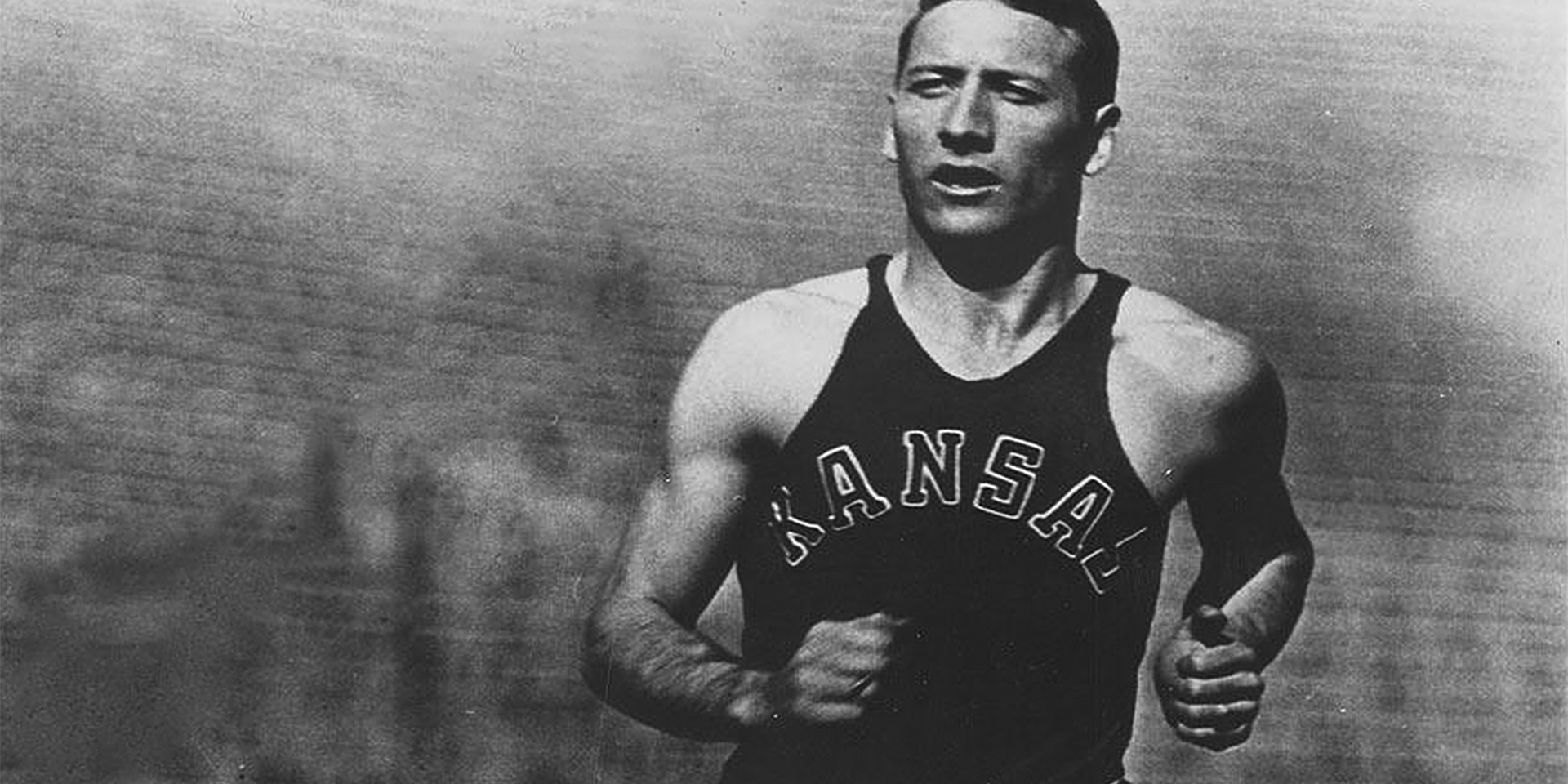We know their stories, or we think we know them. Theirs are stories of success that earn the admiration of the entire world. We see the moment of victory and wish we could be in the place of the victorious ones, without realising the effort and sacrifice that are behind that moment of glory. If we truly grasped this, we might become more aware of the importance of the determination and the belief (which seems irrational) that obstacles are not in our way to stop us, but to be overcome.
Glenn Cunningham was a responsible boy everyone in his school in the small town of Atlanta, Kansas, could rely on. In the early years of the twentieth century, it was his job to wake up early each morning to go to school and light the fire in the stove so that the classroom would be heated when the teacher and his classmates arrived. One day, however, someone accidentally put gasoline in the oil canister with which they lit the fire. Hot coals had been left in the stove since the night before, so the gasoline exploded. Burns from the explosion killed Glenn’s older brother, Floyd, and severely damaged Glenn’s legs.
At just 7, Glenn was sentenced to a life of disability. The doctor suggested amputating his legs to avoid a potential infection that could cost him his life. However, he no longer had flesh on his knees, legs, or toes on his left foot, so the idea that he would ever be able to walk again was out of the question. Seeing his terrified look when he heard this news, his parents refused such a suggestion.
Much to the doctor’s surprise, Glenn survived the infections and was discharged from the hospital in a wheelchair. Back home, his parents tried to help him with massages to at least get feeling back his legs.
“My family was wonderful. I can’t even imagine how awful it must have been, with all those smells and the image of my decaying flesh. (…) However, my family continued to change my bandages and massage my legs, although they did not have much muscle to massage.”1 But despite their best efforts, Glenn could not feel anything.
Yet, he wasn’t willing to give up the belief that he would be able to walk again. His favourite text from the Bible was Isaiah 40, verse 31: “But those who hope in the Lord will renew their strength. They will soar on wings like eagles; they will run and not grow weary, they will walk and not be faint.” One day when his mother had left him in the yard to enjoy the air, when no one was looking, Glenn jumped out of his chair. He crawled through the grass to the wooden fence that surrounded the house. Holding onto the fence, he pulled himself to his feet and began to drag his legs. In a few days, there was no grass left around the fence, but there was no improvement in Glenn’s condition. After several weeks of seemingly futile efforts, he managed for the first time to feel and coordinate his legs so that he could walk on crutches. After many months of effort, in 1917, he managed to give his family the most beautiful Christmas present: his first steps without the support of crutches.
Every step came with a dagger-like pain, yet the boy was unwilling to give up. He learned to walk by holding on to the tail of a cow or a mule to put as little pressure on his feet as possible. He couldn’t fully straighten his left leg, but he was following the animals as they walked around to drink. Then he discovered that the pain was more bearable when he ran holding on to their tail. It was more of a hop than a run, but soon everyone recognised him from the way he moved. “I didn’t walk even three meters without running. I ran, I ran, I ran (…) For five or six years, all I did was run.”2
Glenn’s family moved from town to town quite often to earn a little more from farming. The school in the new city where they moved when he was ten years old was almost two kilometres from home and most of the children had to bring their lunch with them. But Glenn tested his speed during the lunch break, ran home and ate there, then ran back. In the fourth grade, he saw a poster up in the city promoting an athletics competition. He signed up and, to everyone’s surprise, won. He was the youngest of the participants, all the others being students at sports high schools.
During high school, Glenn was a member of the football team and he never missed any sports activity. The pain had not completely disappeared, but with a warm-up and a massage before the competition, he could run without unbearable pain in his legs. His dream was to run at the Olympics. The second dream, just as big, was to become a doctor, just like his grandfather.
In college he managed to pursue both his dreams at the same time. He refused the scholarship that had been offered to him because he wanted to manage on his own, without being helped. He caught the attention of the athletics coach due to the incredible speed with which he managed to run a mile. They called him the “Kansas Flyer” because he came very close to achieving a record no one thought possible—running a mile in less than four minutes.
Although Glenn failed to run a mile in under four minutes, he set a record of 4:06:8, which was not broken for three years. And in 1932 he achieved his dream of running at the Summer Olympics, where he came in fourth in the 1500 metre event. He returned in 1936 to the Berlin Olympics, where he won the silver medal in the same event.
His career as an athlete was interrupted by World War II, but his medical career was not. He got married and had 10 children. He and his wife set up a farm, which he turned into a support center for disadvantaged or traumatised children. More than 10,000 children found help on Glenn’s farm.
His story made him loved and admired by Americans. At the meetings where he was invited to speak, Glenn modestly declared each time that his incredible determination was not to his credit, but to his parents: “Mom and Dad taught us not to whine. I was asked to give a lot of speeches over time and I often talked about overcoming obstacles, but I always knew that I had to give my best and not give up. Complaining about something over which I had no control would have diminished what I was trying to do. I wanted to let the running talk.”3
And his running still talks about the power of a dream: “As long as you think you can do certain things, it’s not impossible.”4
Andreea Irimia teaches computer science and technological education.















